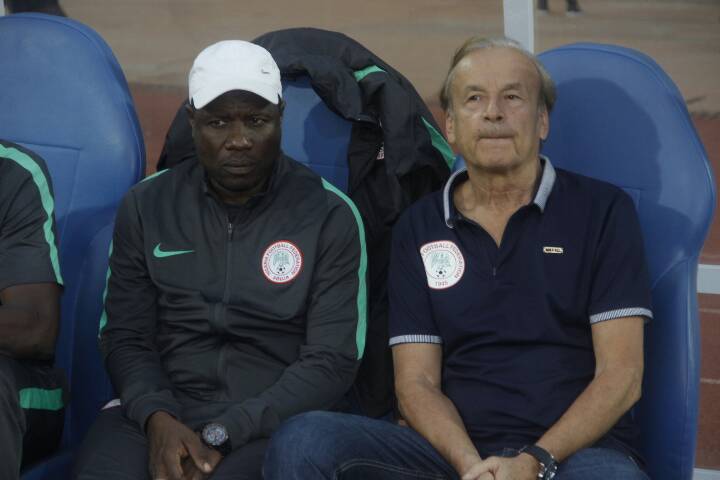The decision to ban national team Assistant Coach, Salisu Yusuf, for a year after he was caught on video accepting cash from a person identifying self as agent (for two footballers under Yusuf’s supervision) opens a room of lessons for Nigeria.
Although the one year ban appears soft but the decision to ban is a major chapter in Nigeria after years of bribery allegations and match fixing for which the football federation largely ignored.
The issue of “Deterrence”
The investigative panel mentioned the word “deterrent” several times that one would assume that such a word is new in Nigerian administration pertaining to matters of malfeasance. Going by history, indeed, the word ‘deterrent’ must be considered new within the corridors of Nigerian football administration.
Rarely has Nigeria acted in order to deter future malfeasance or violations. Consider the fact that the embarrassing use of an ineligible player for a 2018 World Cup qualifier has not been acted upon in spite of the Federation President Amaju Pinnick spitting fire and threats when the matter was initially discovered.
The speed in overturning a five-year ban on Chris Giwa for taking football matters to court is yet another example where “deterrent” has mattered little to leaders of Nigerian football. There are other examples too numerous to cite here.
The fact is that the action taken against Yusuf is cited as a deterrent to others is a new chapter and one that should be embraced. But that is only if Yusuf is indeed seen to serve the full term of his punishment. Nigeria must learn that deterrence does not occur by merely spewing the word but by taking action and sticking to it. That is the only way that a prospective violator will think twice before violating the rule. Otherwise, the malfeasance will continue.
Gift Rule?
But beyond deterrence is that in the non-mention of a gift-rule. Ordinarily, organizations such as the Football Federation should have a limit to the value of gifts that its employees accept. Yusuf claimed that he accepted the money from the agent because, in his view, it was a gift and not a bribe.
In interviews, he claimed it was not a bribe because he did not request the money nor did he promise selection of the agent’s players. However, those are weak defences because the fact that he accepted the money created a climate for influence in his decision making whether or not an explicit promise is made by him or not.
Former national team coach Christian Chukwu told the Vanguard on July 28 that: “If the season is ended and I am on my own then a player’s agent come(s) to me with a present (gift), I will take.” Surely, then, there is perhaps no gift rule for our coaches.
Nonetheless, the gift defence put forward by Yusuf is unconvincing, but it raises the importance of a gift rule. Such a rule must specify the value of gift that may be accepted and must be reported. Furthermore, all high ranking staff or those such as coaches who may be susceptible to gifts must report their assets prior to employment. This is simply best practice.
Conflict of Interest
That Salisu Yusuf received cash from an agent, who has players in Yusuf’s team, is a conflict of interest that he should have been fully aware of. That is undeniable. To receive cash in such circumstance cannot be acceptable, whether or not those players are competitively strong is inconsequential. The bad news here is that this issue of conflict of interest has bedevilled the football federation for a long period.
We have had national team coaches who own football academies while on national service and we have had coaches and football administrators who practised player agentry while in key football administration positions. Those are major conflicts of interest and should be strongly addressed by the federation. These matters of ethics should not be swept under the carpet.
Conclusion
Thus, while one may be concerned that Salisu Yusuf got away with a slap on the wrist, the fact that he is banned for a period points to a welcomed change. As the panel argues, its decision serves as a measure of deterrent to those who may think about such practice in the future.
Importantly, it raises to the surface other issues that should matter to the football federation. Those issues surround the importance of a gift rule as well as adherence to conflict of interest policing.









